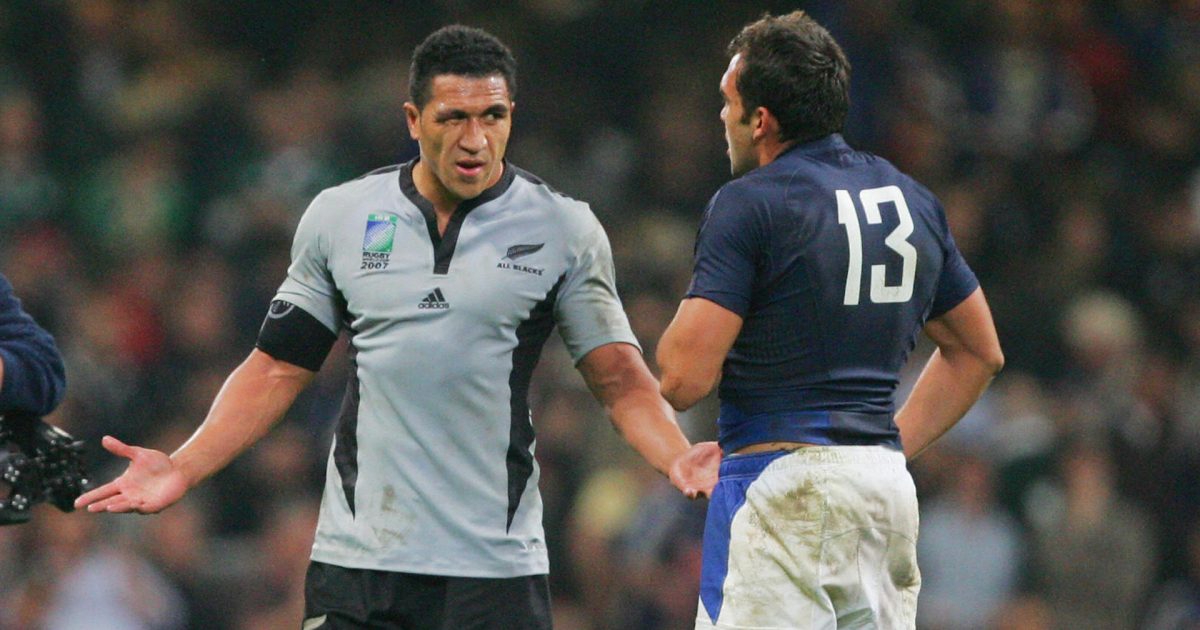What the All Blacks' 2007 World Cup exit can teach Ireland

In the quarter-final, the All Blacks faced the unfamiliar challenge of tackling the world’s best ranked team. Ireland found themselves in a position usually occupied by the Kiwis, boasting a superior record during the World Cup cycle to any other nation, but ultimately came up short of rugby’s most grand prize.
With a notorious all-time winning rate, the All Blacks have often entered the tournament as favourites, and while the three-time world champions have lifted the Webb Ellis Cup as much as any team in history, their dominance outside of World Cups – just shy of an 80 per cent win rate all-time – would suggest they should have more than 33 per cent of the World Cup titles.
It’s a reflection of the unique challenge Rugby World Cups pose and a lesson for any team that underestimates the stage of rugby’s showpiece event.
The All Blacks, contrary to their quarter-final opponents, have had a relatively poor World Cup cycle, lowering expectations for their campaign and placing them as underdogs against an Irish team that had beaten them on five out of the previous eight occassions.
“Not a lot of people gave them a chance,” Parsons said of the All Blacks on the Aotearoa Rugby Pod.
“If you use Johnny Sexton as an example, during the week he was talking about how when he was growing up you couldn’t dream of Ireland winning a World Cup, now we’re making it a reality. It’s like, mate, you’re at the quarter-final.
“There was quite an expectation that this was going to be a walkover. So, they took it personally a lot of those players and you heard Ardie (Savea) say after that, they held on to some receipts of what went on in New Zealand and they got the payback they were looking for at the biggest moment.
“If you look at the All Blacks previously at the World Cup, we’re probably the team that’s like Ireland. We’re impeccable in between and then for some reason, we’ve always had our hurdles getting through World Cups.
“I don’t know, if you asked the fans ‘would you be happy to go through what we’ve been through if we go on to win this World Cup?’ And I think most fans would say yes. We’ll take the World Cup.”
In both 2011 and 2015, New Zealanders were treated to the best of both worlds, with record winning streaks and Rugby Word Cup wins achieved over a historic period.
Ireland were just shy of equalling that record winning streak and had the chance to break it in the tournament, had they progressed to the final. But, against New Zealand, what would have been the greatest day in Irish rugby history was instead a very sombre dissapointment.
Sporting history is rich with the tales of teams who suffered a heart-wrenching loss, took the lessons and went on to become world-beaters. For Ireland to prevail in four years’ time, Parsons says they could look to the history of the team who eliminated them.
“I think the All Blacks did a couple of things after ’07, I think what they stripped it back to was ‘what do we stand for?’
“Then, once they got clarity on what they stood for, then they held themselves accountable to that every day. So, that weight of expectation or pressure was actually generated within the side so that when you got to a standalone Test match versus a World Cup, nothing changed in terms of what they expected of themselves.
“They almost created more pressure in the environment so that it became the norm. There was a lot of weight of expectation on Ireland and I think out of the bac of this experience, they’ll be better for it having experienced it. They won’t be happy about it but I think they’ll be better placed to deal with that if they do come into the next tournament at number one.
“Even if they don’t, they can almost see what’s possible from an All Blacks’ point of view when going into this tournament, losing to France, now in a semi-final and no one gave them an opportunity.
“Knock-out rugby is brutal and you just can’t, you just cannot miss a beat. Two sides are going home that are quality enough to win it.”


































Ireland put themselves under pressure made ourselves accountable and played pretty well under difficult conditions. I thought the homework from NZ (and SA) was better than the NH counterparts.
They exploited opposition weakness better. It’s what happens when you have world class teams like NZ/SA as underdogs in a QF.
One thing NZRU did post 2007 was to keep a losing coach for the next cycle. Graham Henry then went on to win the WWE Cup in 2011 with hisAB’s. There is a lesson there, one which England, to their cost, did heed in 2015.
That is a fairly poor use of statistics. NZ have won 1/3 of all RWCs but their win ration for RWC games is a touch over 85%. Which is higher than their overall or even post-professionalism win rations.
If there’s anything to be learnt by Ireland, it’s not to be disrespectful after a game you’ve won, those comments only give more fuel to your opponent next time round.
No body even tests Sour grapes- there tossed in the bin without hesitation. Being graceful in defeat and respectful to your opponent you’ve just beaten